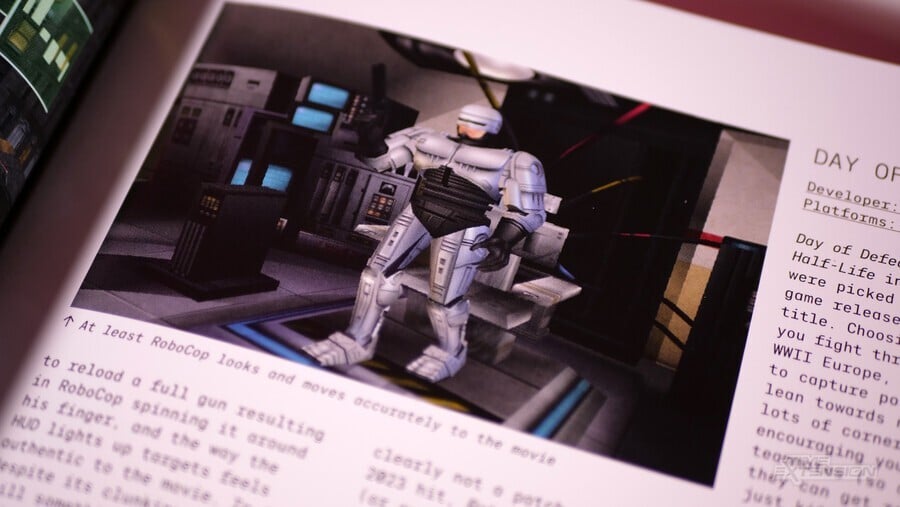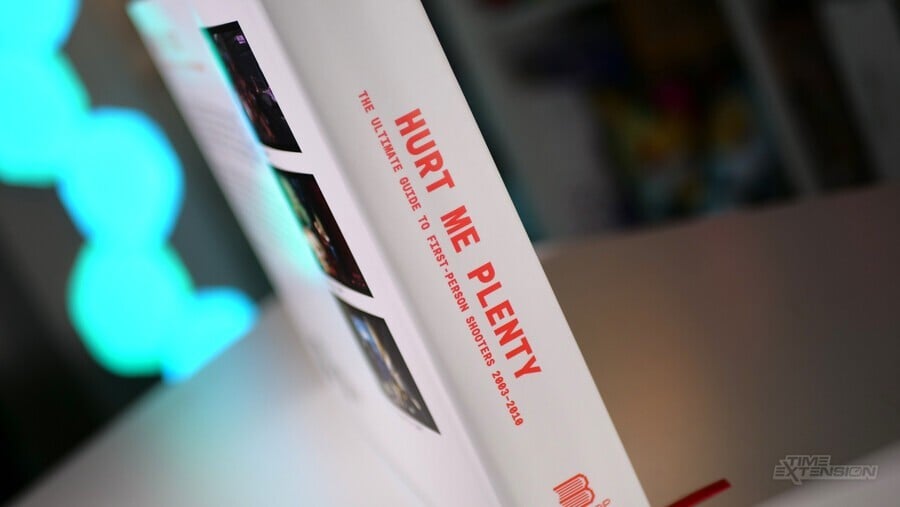
Fans of FPS titles will hopefully have heard of (and even read) Stuart Maine's superb I'm Too Young To Die, published by Bitmap Books back in 2022. A comprehensive look at some of the most significant titles in the genre released between 1992 and 2002 (as well as some of its less-worthy examples), the book charted the dawn of the FPS—and now it's time for its sequel to continue the story, focusing on the period between 2003 and 2010.
For those of us old enough to have lived through this period, the naughties delivered some of the most important FPS games the industry has ever seen, such as Deus Ex, BioShock, Borderlands, Halo and more—titles which took the important groundwork established by the likes of Doom and Quake and evolved things to the next level with more detailed visuals, deeper storytelling and advanced gameplay mechanics.
Hurt Me Plenty devotes a sizeable amount of space to these seminal releases, even going as far as to speak to some of the creatives involved in their production, including Eric Biessman (Call of Duty and Quake 4), Garry Newman (Garry’s Mod), Ken Levine (BioShock), Minh Le (Counter-Strike), Robin Walker (Team Fortress) and Tim Willits (Doom 3). These are the individuals who drove the genre forward during the decade in question, and hearing their insights and memories is riveting stuff.

Maine also speaks to Stephen Kick and Samuel Villarreal of Nightdive Studios, a company which is doing some amazing work when it comes to keeping classic FPS titles relevant via its series of remasters for modern-day systems. Finally, the book's foreword is penned by Harvey Smith, a key figure in the creation and development of not only Deus Ex, but the equally brilliant Dishonored. As was the case with I'm Too Young To Die, Hurt Me Plenty is massively enriched by having input from these key creative figures.
Focusing on the genre's high points wouldn't give a balanced perspective, of course, so it's refreshing to see Maine give almost as much attention to the many FPS bombs which stalked store shelves during this period.

We can't imagine there are many people out there who have a good word to say about Titus' catastrophic 2003 RoboCop video game, for example, but reading about it in the context of the 2000s is interesting nonetheless—if only to remind us how lucky we are to have recently gotten the excellent Robocop: Rogue City. Likewise, reading about FPS titles that were decent but failed to make a commercial impact is also interesting; 2009's fighting/FPS mash-up Zeno Clash is a notable example.
With such a tight focus on a single genre, Hurt Me Plenty obviously runs the risk of alienating potential readers; if you're not a fan of the FPS, then I can't see why you'd want to read over 400 pages about the genre's development in the 2000s.
This is, of course, a minor complaint and one which ignores the fact that the first-person perspective has become perhaps the most popular way of presenting a video game world in recent times; books like Hurt Me Plenty show precisely how we arrived at this point.
Please note that some external links on this page are affiliate links, which means if you click them and make a purchase we may receive a small percentage of the sale. Please read our FTC Disclosure for more information.
